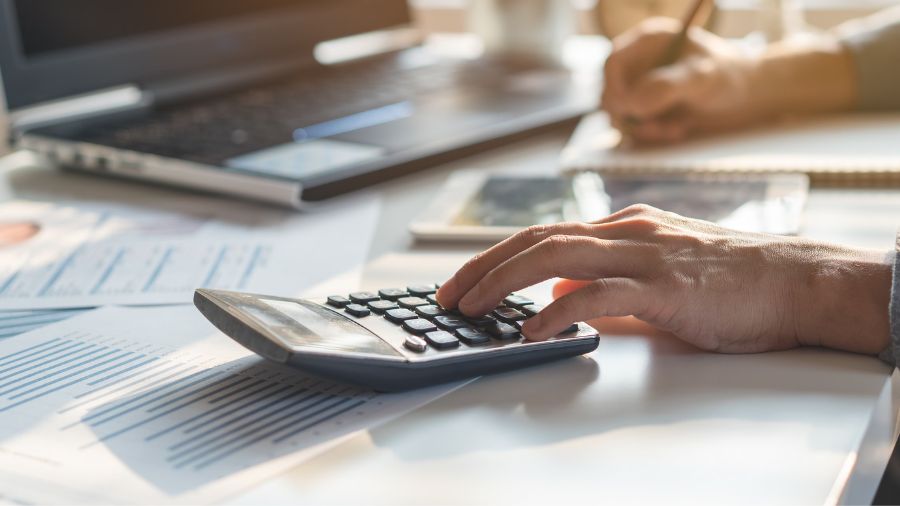As a freelancer, running your own small business comes with its own share of expenses. When used properly, the deduction of your business expenses can help you significantly when tax season rolls around. In this guide, we explain how freelancers can use these tax deductions to their advantage and alleviate their tax burdens.

Tax savings every freelancer should know about
Self-employed business expenses
In Canada, any expense incurred for the purpose of earning income is deductible. Any amount of money you spend to operate or growing your freelance business is tax deductible. In this guide, we’ll break down a few of the things you can deduct from your taxes.
Work-from-home office expenses for your business
As a freelancer, there are many benefits to working from home. Not only do you get more control over your schedule, but you can write-off a percentage of your rent. However, there's some math involved. The overall square footage of your apartment or house must be divided by the square footage of your office space. This amount will give you the amount of the total deduction.
For example, if your home office occupies 15% of your house or apartment, you can write off 15% of your total monthly rent as a tax deduction.
As a rule, current expenditures are deductible in the year when you incur them, while capital expenditures are partially deductible in every year over their useful life. This process is known as capital cost allowance or depreciation.
It’s important to note that if you use your office for personal reasons, you have to lower the percentage you apply to your expenses. For example, if you use your office for 40 business hours per week and the rest for personal use, you divide 40/168 (the total number of hours in a week). This gives you 23%. Multiply this percentage by the home office percentage calculated based on area.
Calculating rent vs mortgage deductibles for freelancers
Before expensing your home office, it’s important to distinguish the differences between renting vs mortgage payments.
Renters can include their rent when calculating their home business deduction. If your rent is $1,800, your office is 15% of your home, and you use the space exclusively for work. You can claim $1,800 multiplied by 0.15, or $270, as a business expense. However, if you’re making mortgage payments, you need to use the price of your home and its current market value to calculate your capital cost allowance.
Meals and entertainment deductions for freelancers
If your self-employed business needs you to pay for meals, beverages, and entertainment, you can claim these costs up to $23 as a daily flat rate.
When you’re making these types of claims, be prepared to show documentation showing the hours you worked on each of the days during that tax year (it’s also recommended you keep receipts from your outings just in case). Because of the flat-rate deduction, you won’t need to submit receipts for any extra meals, beverages and entertainment. If there’s a scenario where you need to claim more than the $23 flat rate, you will need to provide the following:
- Receipts for the food and beverages
- Proof that shows how much extra food and beverages were purchased due to the nature of your work and how this amount exceeds what the average person would consume (for both quantity and cost)
However, memberships and club fees don’t fall under the tax-deductible category. Even if you use a specific membership for your freelance business, you can’t claim it due to the Income Tax Act.
Phone and communication expenses
If you have a phone you use for both business and personal use, you can calculate your deduction in the same manner as explained above. If you have a separate phone used solely for business purposes, you can write off the entire cost as an expense. For example, if your business phone costs $2,400 annually, that entire amount is a business expense.
Vehicle and travel expenses
If your business requires you to drive a vehicle, you can use this as part of your tax deductions for that tax year. This includes things like insurance, gas, rental fees, repairs, and general maintenance. Make sure to log your hours on the road and include business and personal mileage.
Below are a few business-related driving expenses you can include:
- Client meetups
- Conferences and seminars
- Business errands
- Customer visits
If you have to travel for business, travel expenses can also be deducted. A few examples include:
- Bus, train & taxi
- Airplane tickets
- Accommodation
Deductions for bad debts
Bad debt is a sum of money that is owed to you but has been deemed uncollectible and written off. If a receivable can’t be paid but has been recorded as income, you can deduct it from your taxes.
Professional development and education expenses
As a freelancer, you can write-off professional development and educational expenses that will help advance your career and business.
Professional accounting software for freelancers
Freelance work comes with tons of perks. For starters, you can set your own hours and be your own boss. In many scenarios, you get to work within a specialty where you have a passion for the work you’re doing.
In a lot of cases, freelancers are left in the dark regarding their taxes and aren’t sure what to do about their independent business. For organizational purposes, it’s important for freelancers to keep track of their financial documents and keep a separate business bank account.
Cloud-based accounting software for small businesses
Cloud-based accounting software is only getting more popular. It alleviates stress for small business owners and freelancers alike. With the right system put in place, you can put your accounting on autopilot. Accounting software automatically generates important forms and reminders, syncs with bank accounts, and saves client information.
Easily managing finances as a freelancer
Staying on top of your finances as a freelancer is pretty easy thanks to the QuickBooks Self-Employed mobile app. Specifically designed for freelance workers, this app allows you to track your expenses, income, credits, mileage, invoices, personal expenses, and tax information all in one place. This app also allows you to keep track of the overall health of your business in real time. QuickBooks Online can help you maximize your tax deductions. Keep more of what you earn today.



